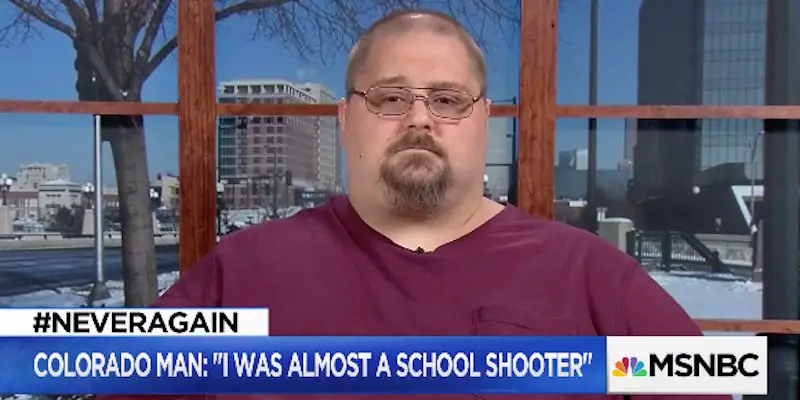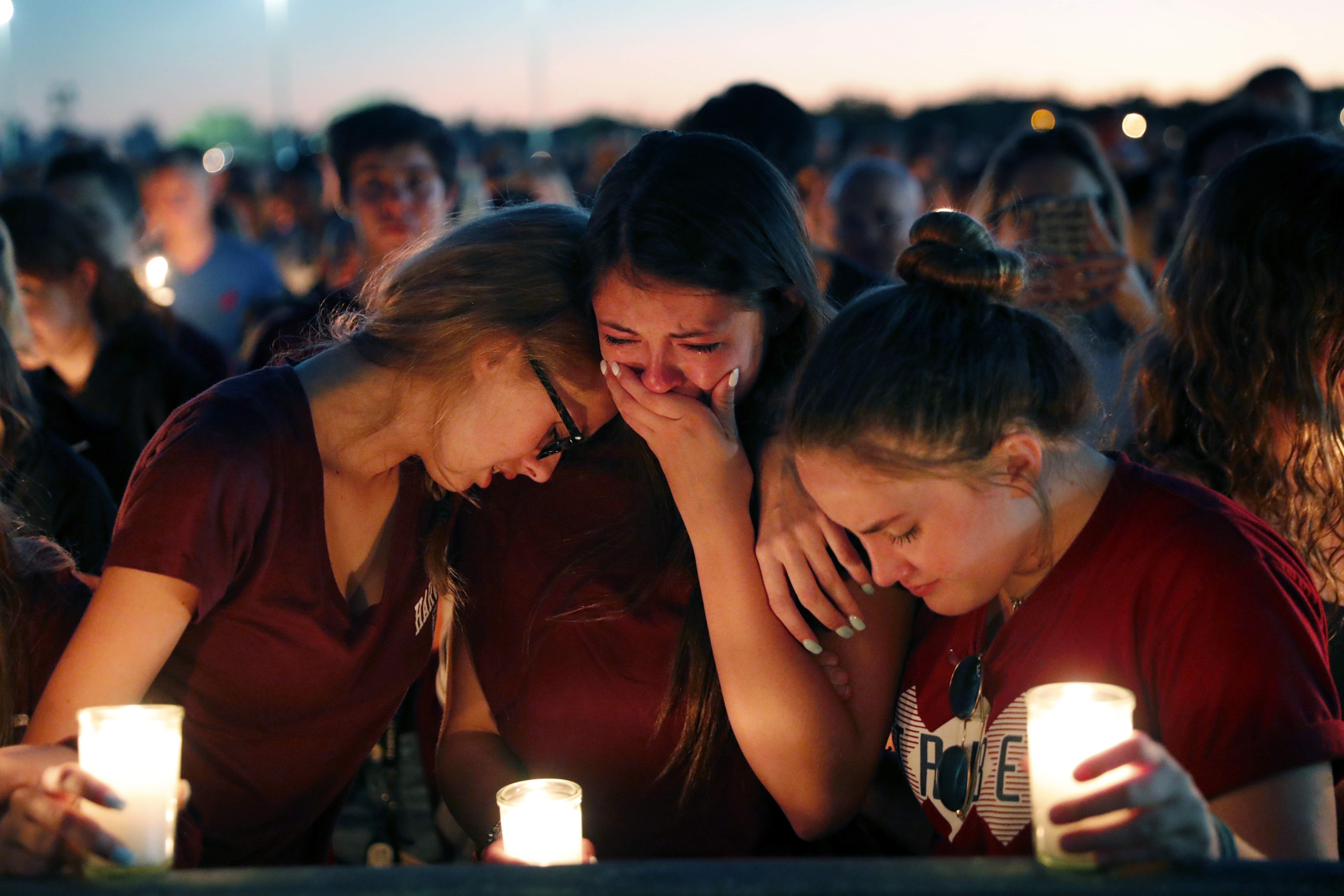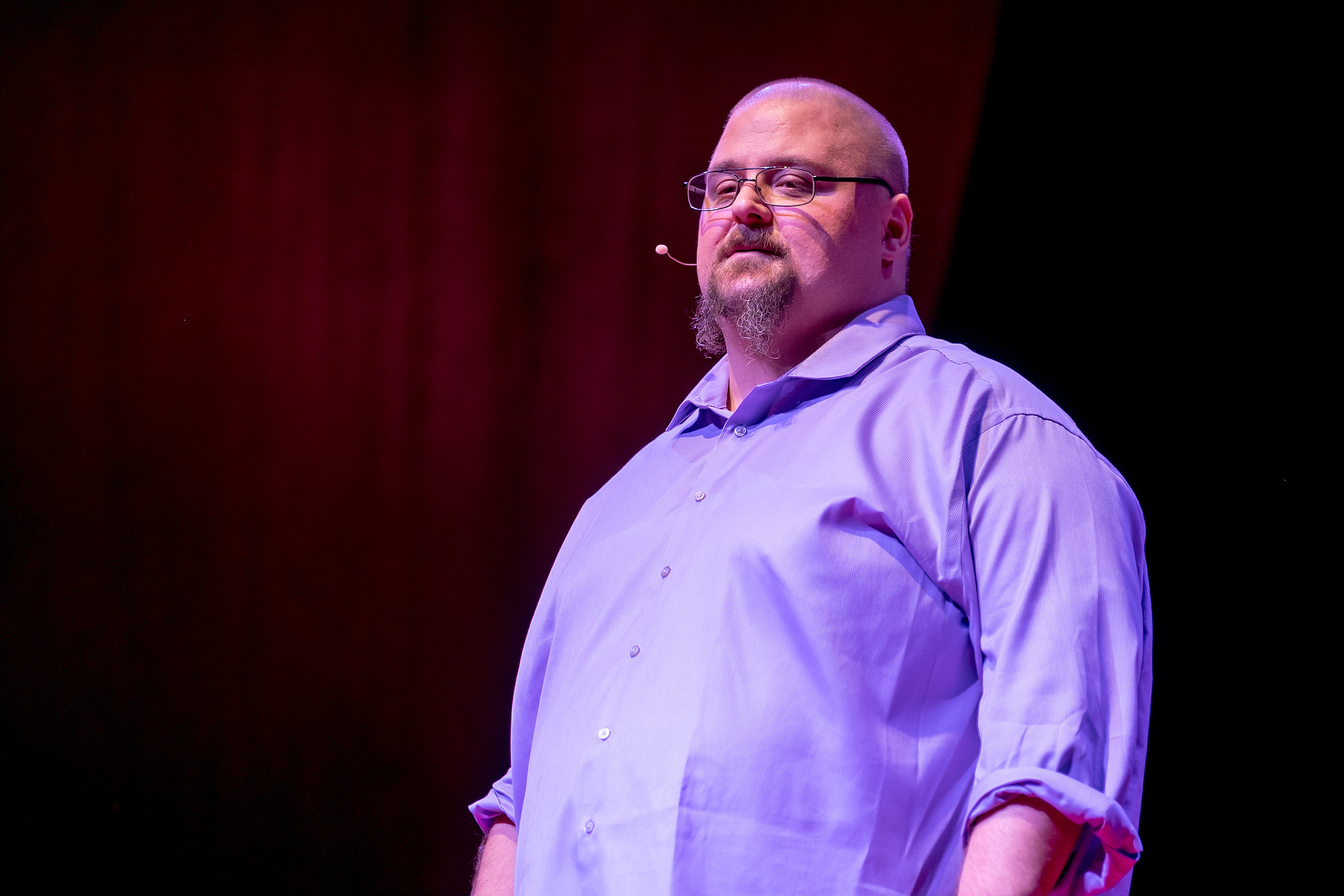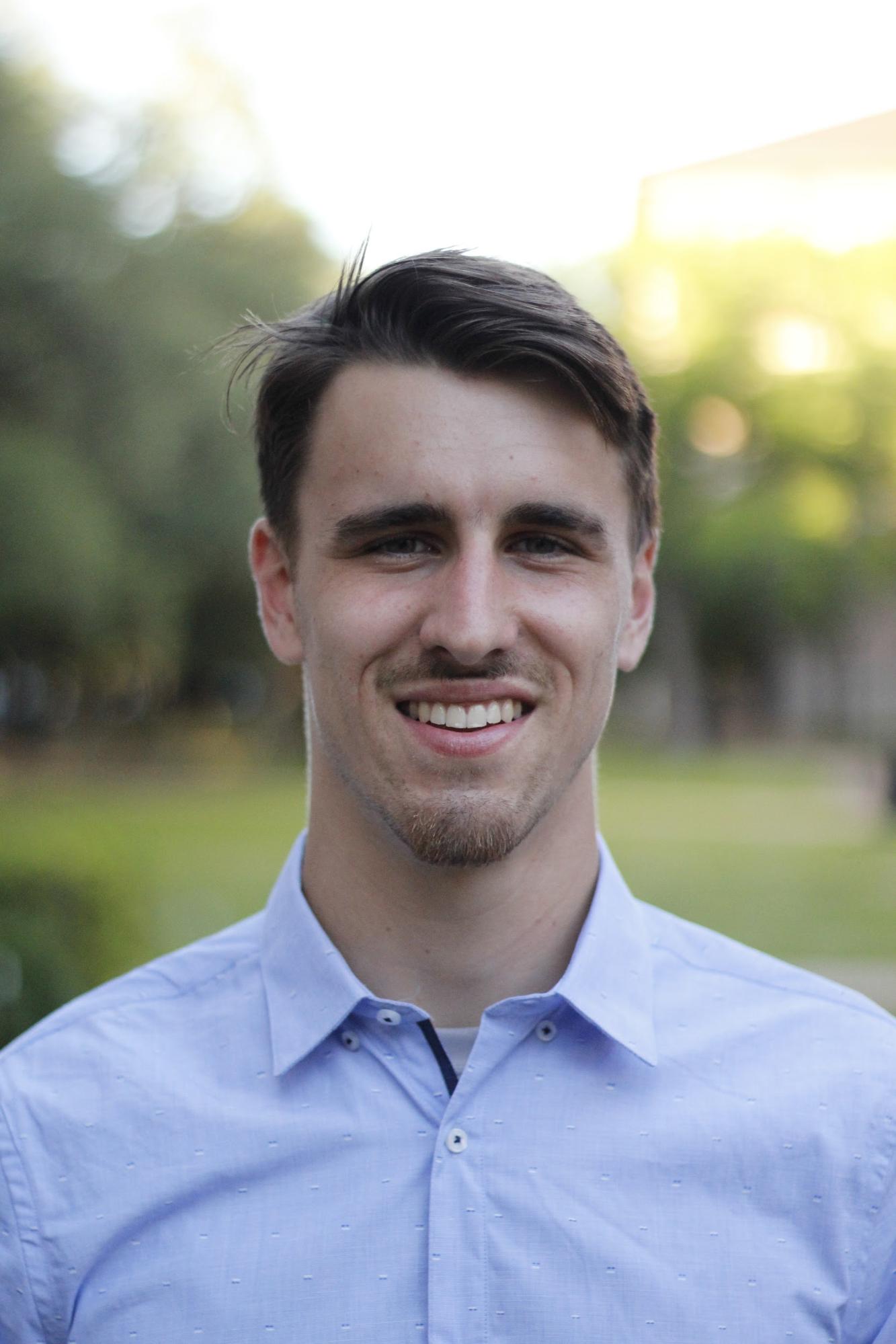It is difficult to understand pain that you don’t feel. When school shootings occur, it is much more intuitive to relate to the families of victims than the family of the shooter, because we forget that the shooters themselves are victims too.
The LA Times found that out of 185 public shooting massacres that took place between 1900 – 2017, 59 percent of the perpetrators were either diagnosed with or showed signs of serious mental illness. Most commit suicide after their sprees. But because mass murderers are often demonized by the media and politicians, the message that society bears a responsibility for the mental state of killers and their descent into insanity is easily forgotten.
Instead, the message the public receives is that some people are simply too far gone, that once someone becomes violent they stay that way. In a way, that message makes people feel better. It imagines these murderers as ticking time bombs whose clocks were impossible to disrupt.
Aaron Stark’s “I Was Almost A School Shooter” TED talk is a powerful reminder that this is not the case — he and other would-be mass murderers are evidence that no one is too far gone. Stark’s story calls every citizen to act on the responsibility of caring for those in need. He owes his life to a person who did just that — a friend he had been horrible and manipulative to who “brought him in” and showed “simple acts of kindness.”
His friend was aware that he was in a dark place but clueless of his plans for a suicide mission and attack. Against his parent’s wishes, Stark’s friend gave him a place to stay away from his dysfunctional home. He was “treated like a person when he didn’t even feel like he was human.”
The TED talk is non-partisan, honest, insightful and incredibly heartfelt, but the way the media has treated it illustrates how narrow-minded the current debate surrounding guns and mass shootings continues to be.
Networks from the right emphasize the role his friend played in stopping his attack, while the left emphasizes the gun control and the fact that he did not have access to assault rifles. Many simply use the story to fuel politicized debate instead of accurately reporting Stark’s larger point about love, which transcends politics.
When MSNBC asked Stark what he believes the focus should be in response to mass shootings, he answered “love.” He expressed fear over the suggestions people have been making to “watch” for those who “might be dangerous,” questioning whether that will lead to innocent people being locked up or turned in to the FBI instead of first being helped.
In his TED talk, he tells the audience to “love people who you feel least deserve it, because they need it the most.” He also acknowledged that there cannot be a sole focus on guns or mental health, saying the issue is multi-faceted.
Despite his clarity, MSNBC ran the sub-heading: “Man could have been a school shooter if he had access to guns,” and made sure to include that Stark “started hiding weapons” within arms’ reach, even though this wasn’t mentioned once the entire interview.

They’re not being dishonest — Stark mentioned in a letter picked up by various media networks that he did not have access to assault rifles — but their headlines are misleading. The thing is, when Stark was looking for a gun, he approached a group of gang members who said they could get him an assault rifle. They told him the deal could be made within three days. Within those three days Stark’s friend made the intervention that saved his life.
To me, this is a murky success for the law. Though he got access, it’s true he didn’t have it immediately; it was prolonged three days. I’m glad Stark couldn’t just walk into a store and buy the rifle, but ultimately it was his friend’s action and not the law that stopped his plan.
Increasing gun control or increasing protection of gun rights are both solutions aimed at minimizing deaths — but not the pain that causes them. Safety and gun issues are a piece of the puzzle, but the piece that is often missing is mental health. Stark notes, “If I had possessed a rifle, I would have been a killer, but if I had known love, I would never have wanted a rifle.”
The second piece of that comment is what both political parties can agree on: if taken more seriously, genuine kindness and understanding could diffuse a lot of the heat around gun debates.
For that discussion to happen, people need evidence it is worth having. That is what Stark’s TED talk is. We must realize that there are other Aaron Starks out there who have not spoken out publicly. Stark only spoke up 25 years after his episode and after fierce responses to the shooting at Stoney Douglass in Parkland, Florida.

Cases for or against gun rights are convincing and concrete, or at least people believe they are. The death tolls are measured, and agencies keep track of the statistics in states with more strict or more lenient gun control. Democrats and Republicans alike are attracted to engage in arguments, constantly trying to one-up each other’s enthusiasm.
On the other hand, people often miss the value of discussing mental health and how it relates to topics like love. How many lives are saved each year because of people like Stark’s friend? It’s impossible to know, but it’s worth thinking about.
Part of the discussion is realizing that someday any of us may be in a position to stop a mass murder — not through active shooter training or because of legislation that bans guns — but through uncomfortable actions, where you risk being wrong or awkward to offer humanity to someone starving for it.
It’s scary and burdening and calls us to be vigilant against complacency. Aaron Stark’s “I Was Almost A School Shooter” TED talk is rare, but it is evidence that no one is “too far gone.” Whether we listen to his message or not is up to us.

















